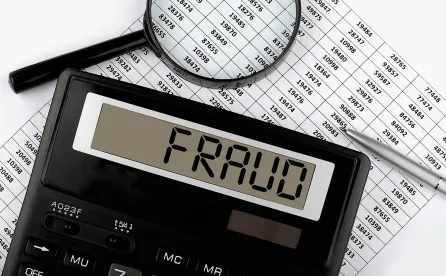On November 8, 2021, the Department of Health & Human Services (“HHS”) Office of the Inspector General (“OIG”) issued a handful of changes to its Provider Self-Disclosure Protocol and renamed the long-standing guidance document. It is now referred to as, “OIG’s Health Care Fraud Self-Disclosure Protocol” (“SDP”).
The SDP provides individuals and entities an opportunity to “voluntarily disclose self-discovered evidence of potential fraud” and “avoid the costs and disruptions associated with a Government-directed investigation and civil or administrative litigation.”
Although the revisions are relatively minor, it is important for providers and suppliers to understand and follow the OIG’s amended guidance when making a voluntary disclosure. The key revisions are discussed below:
-
Minimum Settlement Doubled: OIG increased the minimum amounts required to settle under the SDP. The minimum amount required to settle kickback-related matters doubled from $50,000 to $100,000. For all other matters accepted into the SDP, OIG increased the required minimum from $10,000 to $20,000 to resolve the matter. As such, the OIG will expect that any settlement flowing from a self-disclosure involving a kickback-related matter will be at least $100,000 ($20,000 for all other matters).
-
OIG May No Longer Advocate for Disclosing Parties in Criminal Matters: In the prior version of the SDP, OIG stated that it would coordinate with the Department of Justice (“DOJ”) and “advocate that the disclosing parties receive a benefit from disclosure under the SDP” in both civil and criminal matters. The revised SDP states that OIG will still advocate for a benefit in civil matters, but removes the same language with respect to criminal matters. As such, providers should not expect OIG to “help with” DOJ in criminal matters, regardless of how cooperative the provider was with OIG under the SDP.
-
Grant and Contractor Self-Disclosure Programs: Disclosures related to grants or HHS contractors must be made under the OIG’s Grant Self-Disclosure Program[1] or the OIG’s Contractor Self-Disclosure Program.[2]
-
Itemized Damages: The SDP now requires a calculation of estimated “damages” for each affected Federal health care program (e.g., separate calculations/estimates for Medicare, Medicaid, and TRICARE), and the sum of estimated damages for all affected Federal health care programs.
-
Disclosing Parties under Corporate Integrity Agreements: Both the prior and current versions of the SDP allowed disclosing parties under Corporate Integrity Agreements to use the SDP. The revised SDP now requires the disclosing party to “reference the fact that the disclosing party is subject to a CIA” and “send a copy of the disclosure to the disclosing party’s OIG monitor.”
-
Electronic Submission Required: The initial self-disclosure disclosure must be submitted electronically through the OIG’s web page.[3]
Other than the minimum resolution thresholds, the revisions to the self-disclosure protocol are largely procedural. As such, providers who are considering the risks and advantages of making a self-disclosure to OIG will not change those calculations based upon these revisions to the protocol. In appropriate circumstances, the OIG’s Self-Disclosure Protocol remains a potentially useful tool to address legal and compliance issues.
FOOTNOTES
[1] HHS OIG Grant Self Disclosure Program





 />i
/>i
